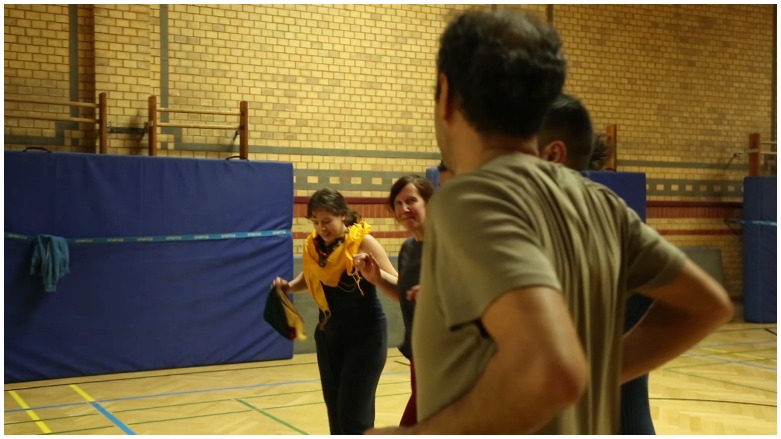German woman learns Kurdish dance, hopes to tutor one day

ERBIL (Kurdistan 24) – A German woman has learned nearly 50 versions of the Kurdish traditional dance known as “Halparke” and says if circumstances allow it, she wants to tutor apprentices in the future.
Sonja Strecker is a 28-year-old woman who lives in Berlin. As a hobby, she began to learn the various types of Halparke eight years ago when she joined a newly-formed group dedicated to the activity.
Govandaki, or Govand Kurdish International, is a group that began with three enthusiasts who sought to familiarize interested individuals with Kurdish culture and their folkloric dance, the director and one of the trainers of the group, Veysi Ozgur, told Kurdistan 24. Govand means dance in the Kurmanji dialect.
“Now, we are close to 56 members and increasing by the day as more foreigners and Kurds [in Germany] join up with us,” Ozgur said.
“I know many types of Halparke from Bakur,” Strecker told Kurdistan 24 in a recent interview, using the Kurdish word Bakur, which means “north” but is used colloquially to mean the Kurdish-inhabited areas in southeastern Turkey.
She added that she had also learned various other forms of the dance from those performed in the Kurdistan Region to some in Iranian Kurdistan (Rojhilat).
“My main goal in [doing] the Kurdish Halparke is to enjoy it and learn the most I can from the various regions of Kurdistan,” said Strecker. “I have dreamed for the longest time to become a Halparke instructor and if the opportunity presents itself, I will.”
The Kurdish dance is partly characterized by the fact that genders are mixed during their performance.
The dance is usually performed by a group of people who form an arc and move rhythmically in a circle. The person leading the rest, called a Sarchopi, usually flies a colorful piece of cloth and is tasked with maintaining the high spirit and harmony of the performance.
Editing by Karzan Sulaivany
(Additional reporting by Kurdistan 24 correspondent in Germany Shawqi Kanabi)
